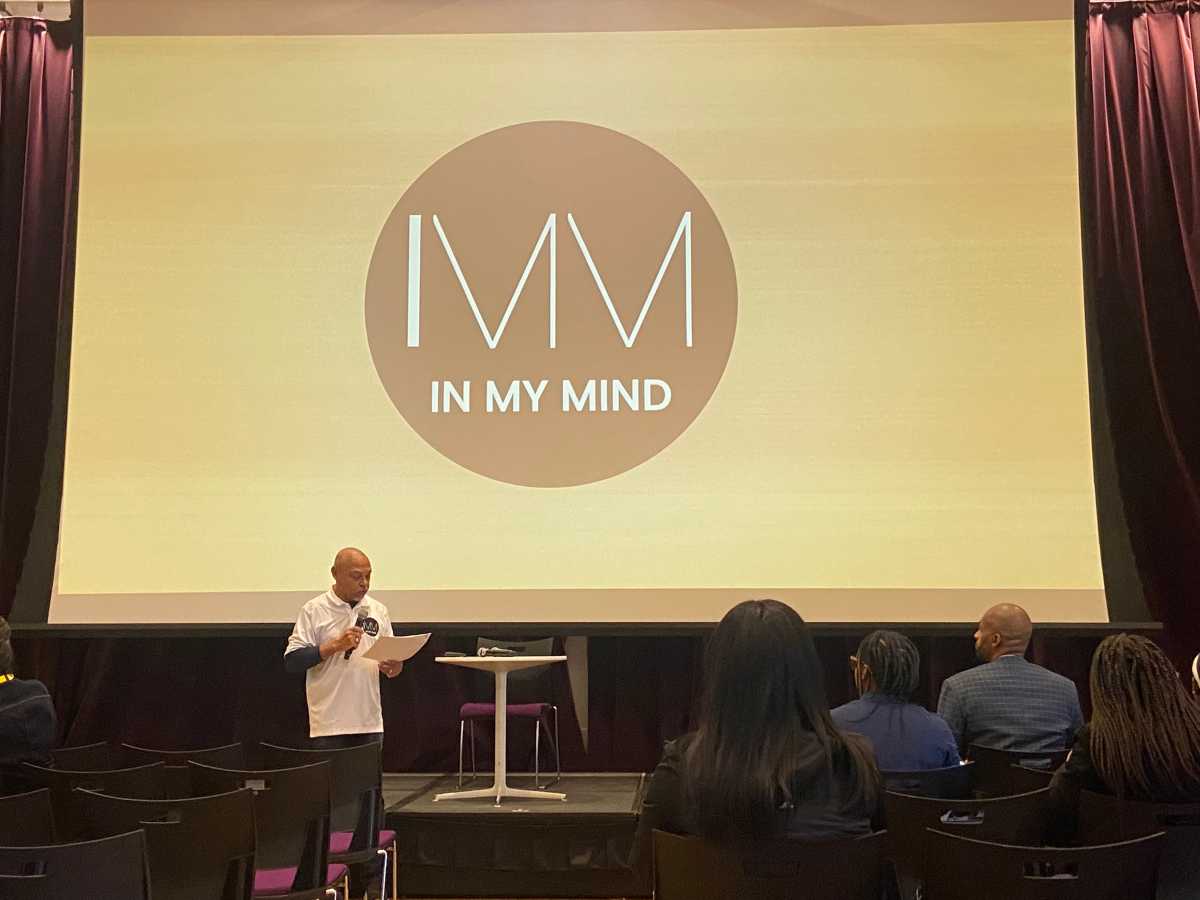The 11th annual In My Mind Conference, which was led by DBGM Inc. with the help of volunteers from local non-profit organizations, took place on Oct. 10 at the LGBT Community Center in Manhattan.
The conference, which involves multiple discussions about the mental health issues among 2S-LGBTQIA+/SGL Black and people of color face daily, placed a unique focus on veterans for this year’s event.
Petal Fogenay-Foster, the deputy director of workforce development at the Osborne Association, opened the conference with a thoughtful provocation on what it means to be a LGBTQIA+ veteran of color in the face of adversity. Petal started the day with inspiration and intentionality, as they encouraged attendees to take back their own power from a justice system which has failed them.

“The world tells us to shrink,” Petal said. “We have to commit the radical act of showing up in our fullness. I will never shrink, and you shouldn’t either.”
Setting the stage for the rest of the day, Petal motivated the crowd to remember that strength comes with collective action. No matter how different 2s-LGBTQIA+/SGL people of color might present themselves, Petal emphasized, they are all one and the same.
Another guest speaker, Dr. Gary Bailey, program director for the School of Social Work at Simmons University, focused specifically on the intersection of race, gender/sexuality, trauma, and veteran status. Simmons provided insightful analysis on what it has historically meant, and continues to mean, to be a Black and Brown person in the military, and how the trauma they endure greatly increases when they identify as a queer person.
During his presentation, Bailey spent time dissecting “Don’t Ask, Don’t Tell,” which was a policy in the United States from 1994 until 2011 that barred queer individuals from serving in the military. He then tied that to the Trump administration’s latest ban on transgender individuals from serving in the military.

“Oftentimes, the new-age view of the military is that it is only bad,” Dr. Bailey commented, “but many young progressives can’t fully grasp the opportunities that the military has provided Black and Brown people.”
Not only did it provide initial jobs, but it also allowed for access to the GI Bill after service, improving access to education.
In the wake of Trump’s second ban on Transgender people in the military, some may wonder if “Don’t Ask, Don’t Tell” could reemerge. But, as Bailey noted in his presentation, it is impossible to fear the resurgence of this law without also fearing for the livelihood of the Black and Brown community, highlighting the cyclical trauma that Queer veterans of color continue to endure.

The In My Mind Conference shifts its focus to different topics, depending on the year. Last year’s event, for example, featured discussions about the experiences of LGBTQ immigrants, including mental health, racism, and the process of seeking asylum in the United States. Last year’s event was held at the Tisch Auditorium at the New School.
Other speakers at this year’s conference included Philip B. Terry-Smith and Justin Terry-Smith, who are clinicians and Air Force veterans, and Tanya Asapansa-Johnson Walker, a US Army veteran and co-founder of New York Transgender Advocacy Group.
Learn more about the conference at inmymindconference.com.



































